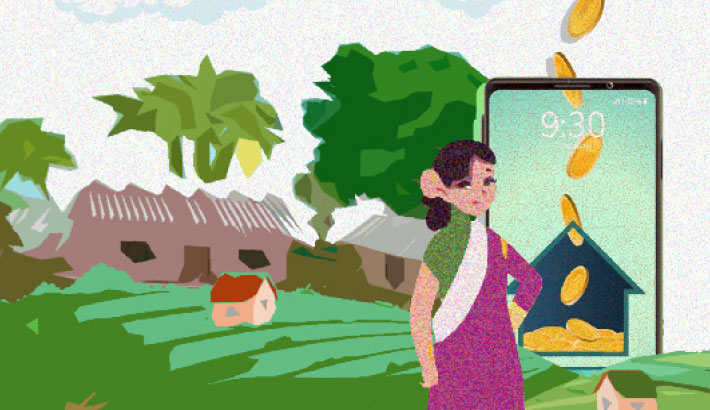Lower-income households opt for cash savings, hindering economic development
Ariful Islam
Published: 27 Feb 2025

The COVID-19 pandemic has underscored the importance of saving money, yet many lower-income households in Bangladesh continue to prefer saving cash at home rather than using formal financial channels such as banks. This trend, particularly prevalent in rural communities and among women, is primarily due to a lack of technological knowledge and limited access to financial services.
As a result, these savings remain unproductive, failing to generate interest or contribute to the economy.
Dr Mustafa K Mujeri, executive director of the Institute for Inclusive Finance and Development, emphasises the need for greater financial inclusion and education to encourage people to transition towards formal savings methods. By providing accessible banking solutions and financial literacy programmes, Bangladesh can unlock the potential of these savings, fostering long-term economic growth for both individuals and the nation.
Financial literacy and technology training are crucial to empowering people to use banks and contribute to the economy
Tailored financial services and education can foster greater financial inclusion and long-term economic growth
Dr Mujeri explained that the primary reason many people, particularly those in rural areas, prefer saving cash at home is a lack of trust in the banking system. Most rural residents, especially women, are unfamiliar with banking processes and feel excluded from financial services. This disconnect, along with the absence of suitable savings mechanisms for the poor, prevents individuals from benefiting from formal banking tools.
Furthermore, many rural women and less-educated individuals lack familiarity with financial technologies, deterring them from using formal banking services. Dr Mujeri believes that with proper financial education and training, these individuals can be empowered to use digital financial systems confidently. He advocates for comprehensive financial literacy programmes to equip rural women with the knowledge and skills necessary to manage their finances effectively.
By creating accessible banking solutions and enhancing financial literacy, Bangladesh can integrate more people into the formal economy, encouraging them to save and invest their money. This shift would not only improve individual financial security but also contribute to the country's broader economic development.
Dr Mujeri stressed the importance of providing financial literacy programmes, particularly for rural women, to help them utilise technology for managing their finances. “If we can educate them about financial technologies and show them how to use these systems, they will feel more confident in using banks and contribute to the economy in a meaningful way,” he said.


